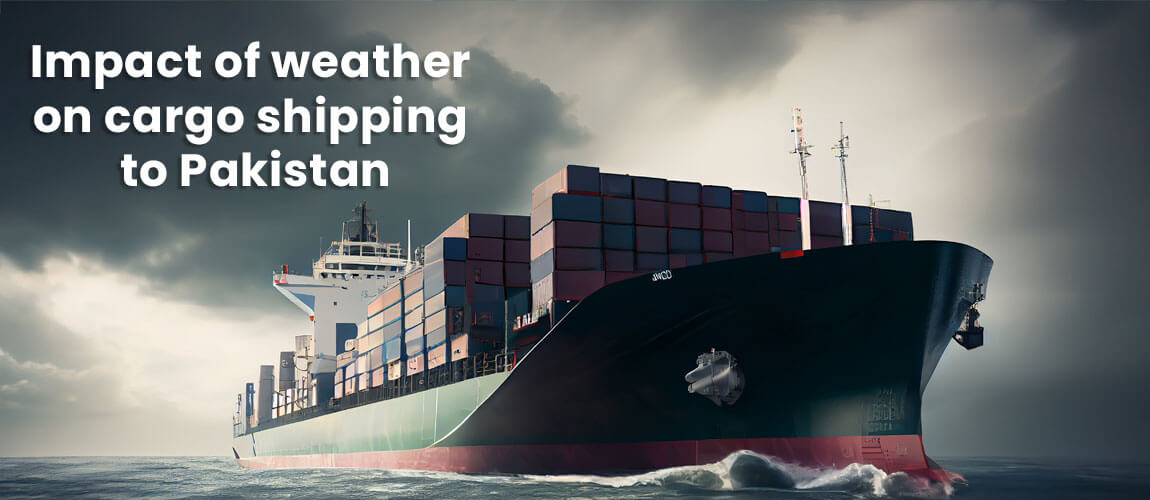
Shipping freight to Pakistan, a country noted for its lively culture and thriving economy, is a difficult operation influenced by a variety of factors, including the weather. This extensive study goes into the various effects of weather on cargo shipping to this South Asian country. Weather patterns, which range from monsoon rains to high temperatures, have an important influence regarding the efficiency and dependability of maritime activities and dust storms. Understanding these implications is critical to organizations and logistics providers to ensure smooth and sustainable cargo movement.
What Impact Does the Weather Have on Delivery?
The calendar winter season is marked by smog and fog and sometimes a sharp drop in temperature. The sunny day is getting shorter in duration. Long-distance delivery operations do not profit from such weather-related quirks. Transportation may suffer if tires have poor adherence to the snow-covered road surface. In addition to “drifting” cars on a mirror surface into ice conditions, a strong, gusty wind and dust storms can halt traffic because of poor vision.
Driving safely demands competence from the driver, including stamina and physical power. When shipping during the winter, you frequently have to cope with traffic congestion that stretch for kilometers due to slow-moving vehicles.
Foggy weather disrupts the flow of shipping activity

Fog, mist, and smog are the most common problems encountered when transporting people and goods from one location to another during the winter months. Due to this circumstance, transport on roads and air traffic suffers.
Climate causes cargo movement to slow down significantly. When you work in a chain and are part of a larger loop, your latency may encounter smog and fog the entire chain. This delay has disrupted the international cargo economy in Pakistan and the subcontinent.
Transportation in steep places is especially affected by the hard winter season.
The hilly parts of Pakistan are relatively remote and have high elevations above sea level. In the winter, they function similarly to deep freezers, with no movement possible, but cargo transport must move.
Effects of Weather-Related Disruptions
Higher Shipping Prices
When shipping cargo to Pakistan, weather-related delays always result in higher operating costs. Delays, rerouting, damage to products, and additional operating costs are some of the causes of these expenditures.
The freight activity is disrupted by the foggy weather
smog and fog are the main obstacles to moving people and goods from one location to another during the winter months. Road and air transportation are severely disrupted as a result of this circumstance.
Because of the climate, cargo movement becomes extremely slow. If you work in a chain and are a part of a large loop, your delay could cause the chain as a whole to break. The worldwide cargo industry linked to Pakistan and the subcontinent is disrupted as a result of this delay due to dust storms.
In conclusion
Delivery operations can be significantly impacted by weather, which can result in delays, elevated hazards, and increased operating expenses. Drivers and cars are challenged by elements like snow, ice, and cold temperatures, thus it is crucial for businesses to be sufficiently prepared. Using delivery management software is essential for reducing the effects of smog and fog and resolving some delivery issues.

 07424380227
07424380227